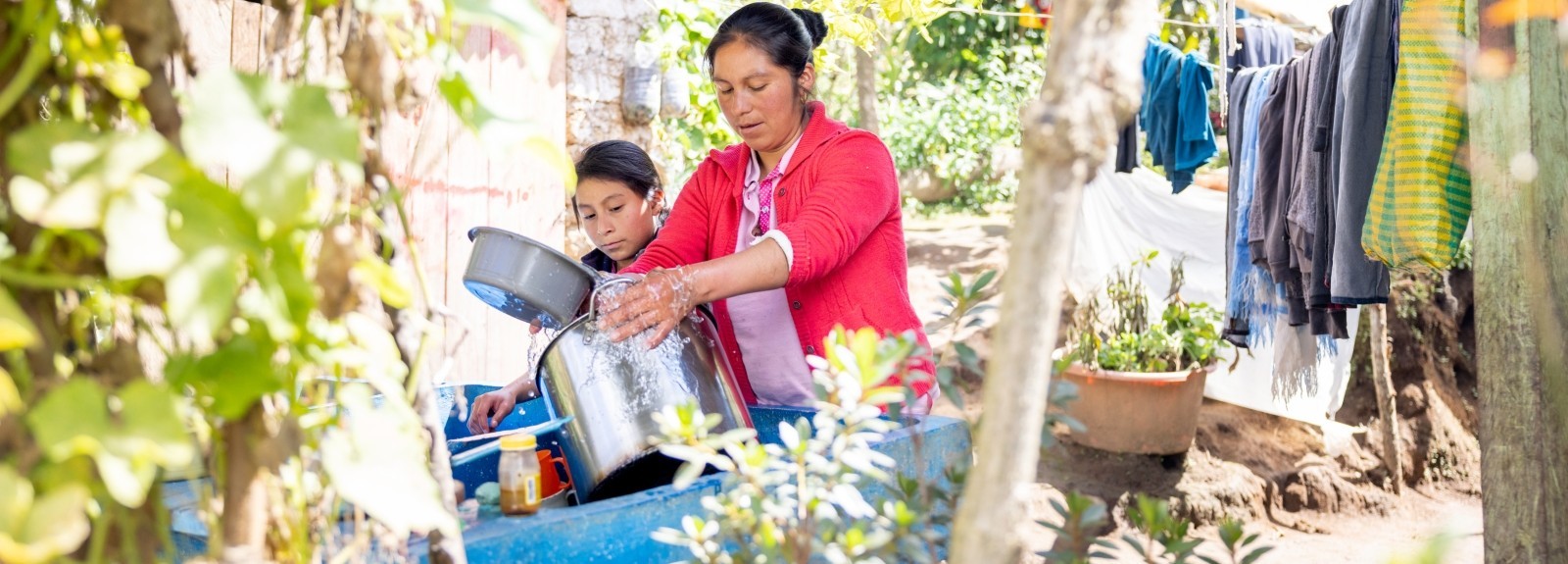Guatemala faces overwhelming health and nutrition challenges. It has the highest rate of stunting in the Western Hemisphere and the fifth-highest rate in the world. Chronic malnutrition is pervasive and almost half of all Guatemalans lack access to improved sanitation.
To address these challenges, Corus organization Lutheran World Relief implemented a project aimed at improving personal and home hygiene, diversifying agricultural production to improve the nutrition of Guatemalan families, and reducing the prevalence of diarrhea in children under five.
Focusing on local partnership, the Improving Health and Nutrition in Guatemala’s Western Highlands project, implemented in collaboration with FundaSistemas, worked across fifteen communities in the department of San Marcos. Applying innovative behavior change methodologies, the project utilized home visits, technical assistance and an arts-based curriculum to promote healthy food consumption, maternal and child health and WASH best practices.
Cecilia Morales fills up a cup with safe, filtered water while her younger sister Kimberly shows off her just-washed hands.
Arts-Based Community Development (ABCD)
ABCD was a powerful program strategy that harnessed the transformative potential of traditional art forms such as dialogue, dance, music and theater to promote health literacy and drive behavior change. By utilizing art forms that were familiar to communities, the ABCD methodology ensured that its health messaging resonated within the community.
Collaborating with Caja Lúdica, a local organization skilled in art and behavior change, the project developed characters, scripts, theatrical sequences and instructional videos for community workshops. Moreover, the project provided training to both project staff and community members on how they could lead ABCD workshops in the future to sustain health messaging.
The ABCD methodology proved to be remarkably effective in targeted project communities in San Marcos. Community members have improved their personal hygiene, which can lead to less infection and incidence of diarrhea. One mother shared that when she forgets to clean something, even her children will say, "Mommy, you didn't wash that, what did we learn?" Community members also learned to maintain cleaner and healthier home environments. The endline project study even found that 99% of participants had adopted best practices in the use and management of latrines.
Wendy Castro is a community promoter in La Democracia, Guatemala. Every target community has a health promoter to encourage safe hygiene practices and an agriculture promoter to establish productive farming practices.
The ABCD methodology has played a crucial role in fostering behavior change and improving health and nutrition outcomes in Guatemala. Through a dedicated partnership between Lutheran World Relief, FundaSistemas and other local actors, we have successfully integrated expertise and disciplines to support locally led solutions. ABCD techniques have the potential to be scaled across regions, providing a valuable approach to tackling critical challenges that require lasting social and behavioral change.
Lutheran World Relief is committed to continuing to support farming families in Guatemala to improve health and nutrition, increase crop quality and yield, access sources of credit and sell produce in bigger and more profitable markets. By championing co-creation to strengthen market-based agricultural development, we strive to address the main drivers of malnutrition, poverty and migration through a holistic approach that advances community resiliency and long-term food security.

